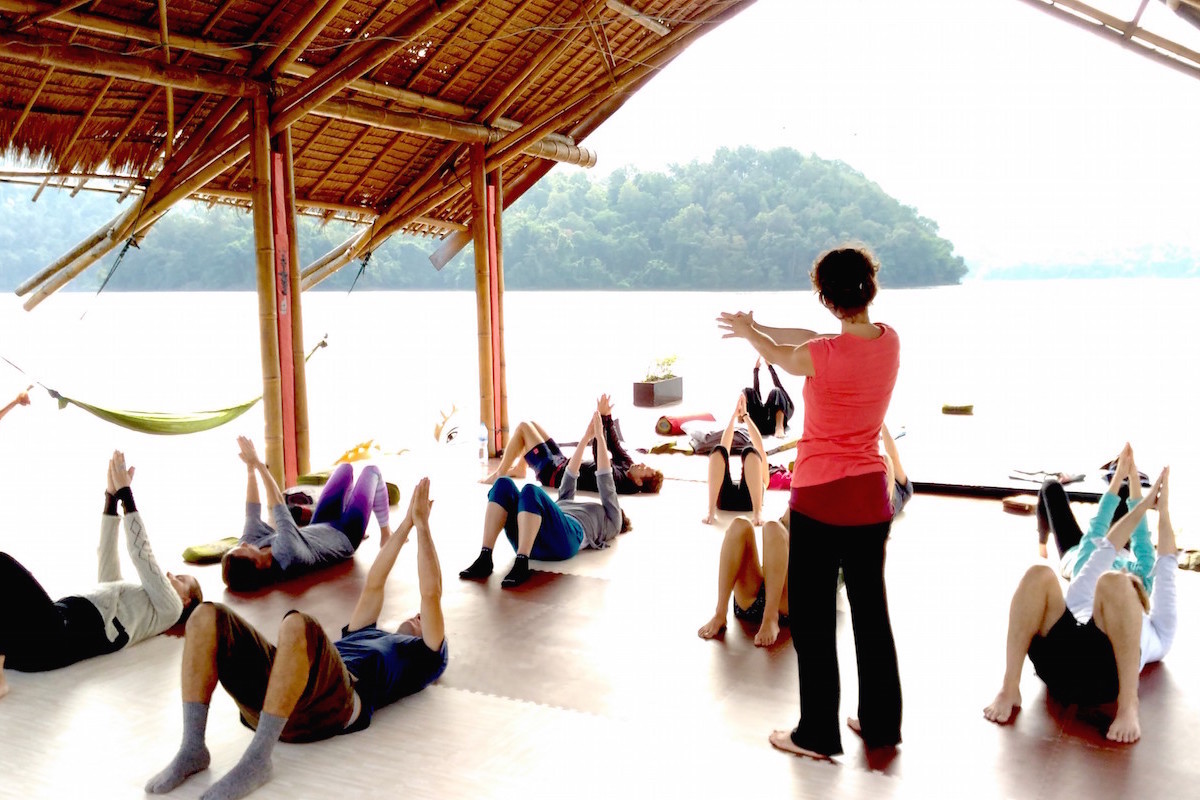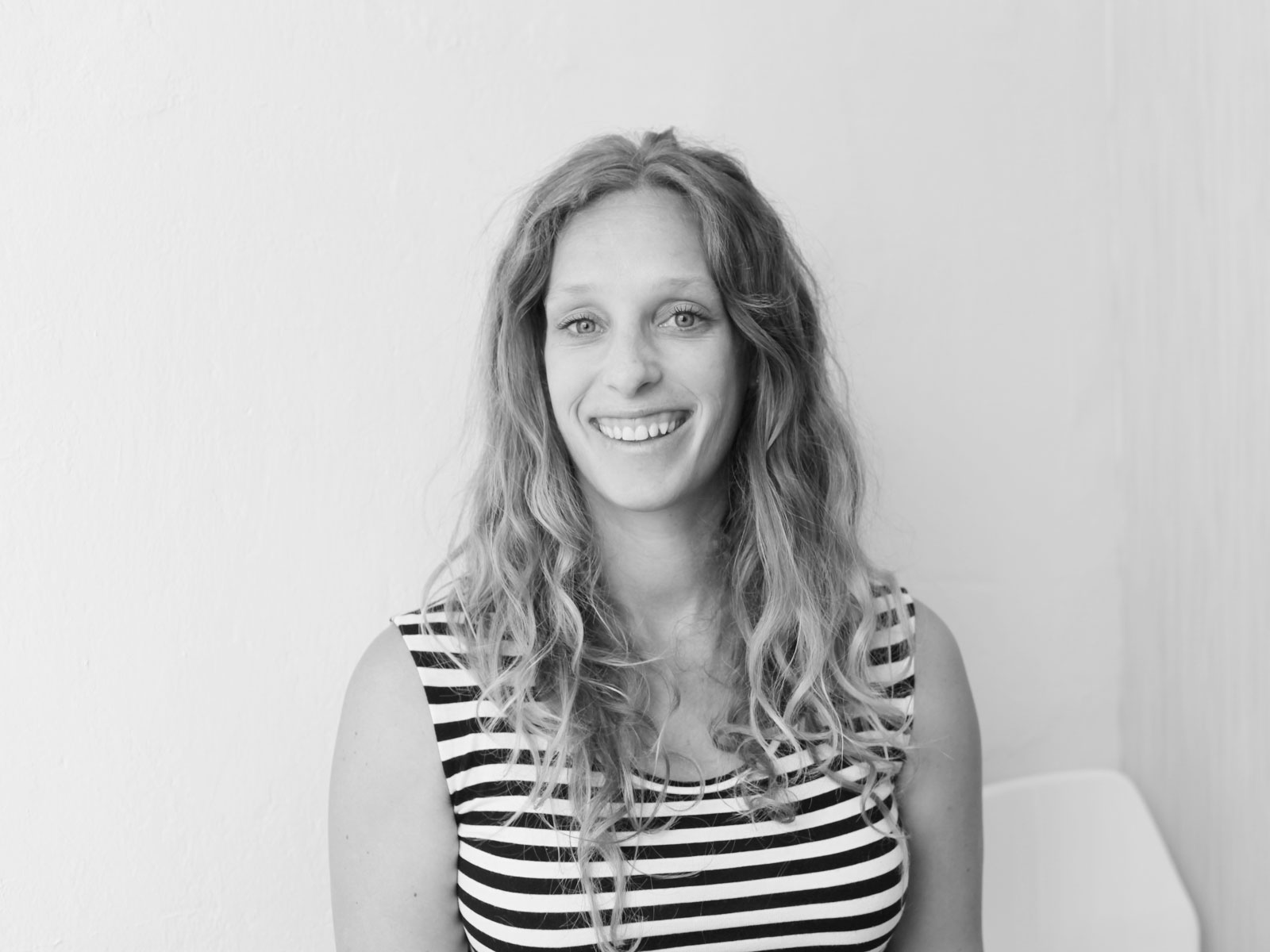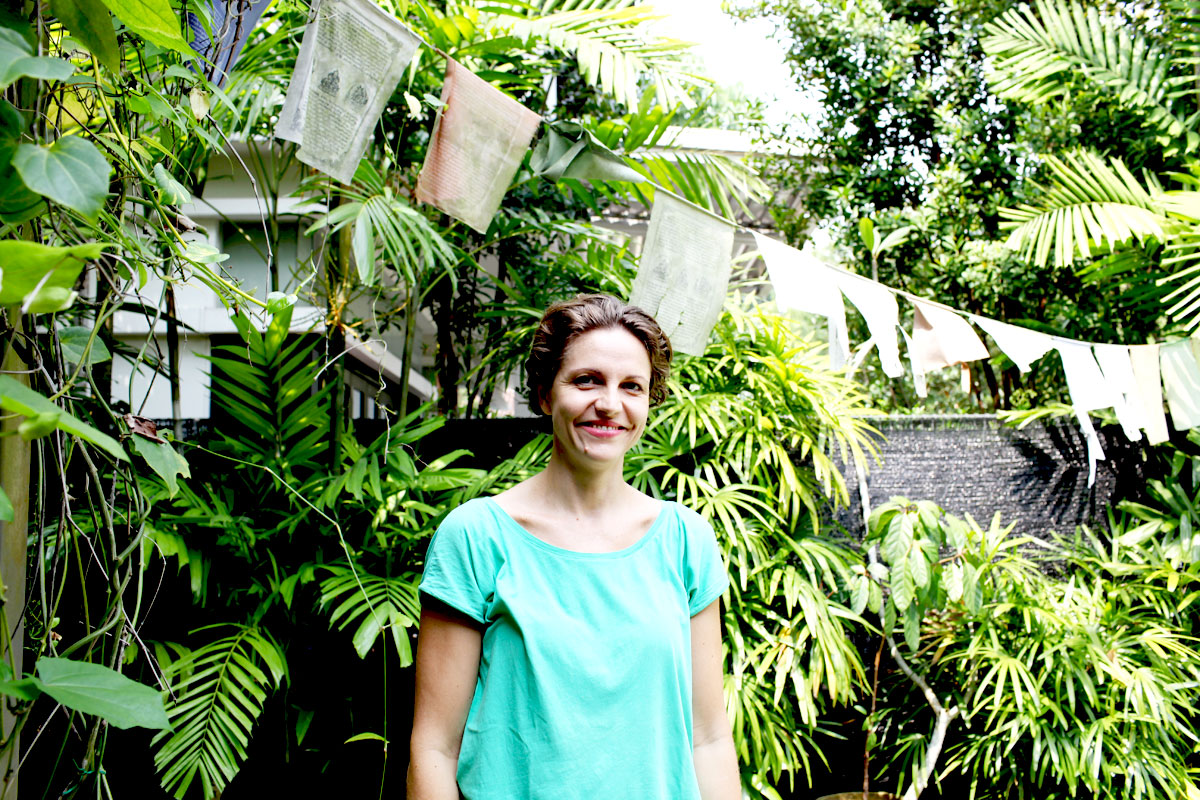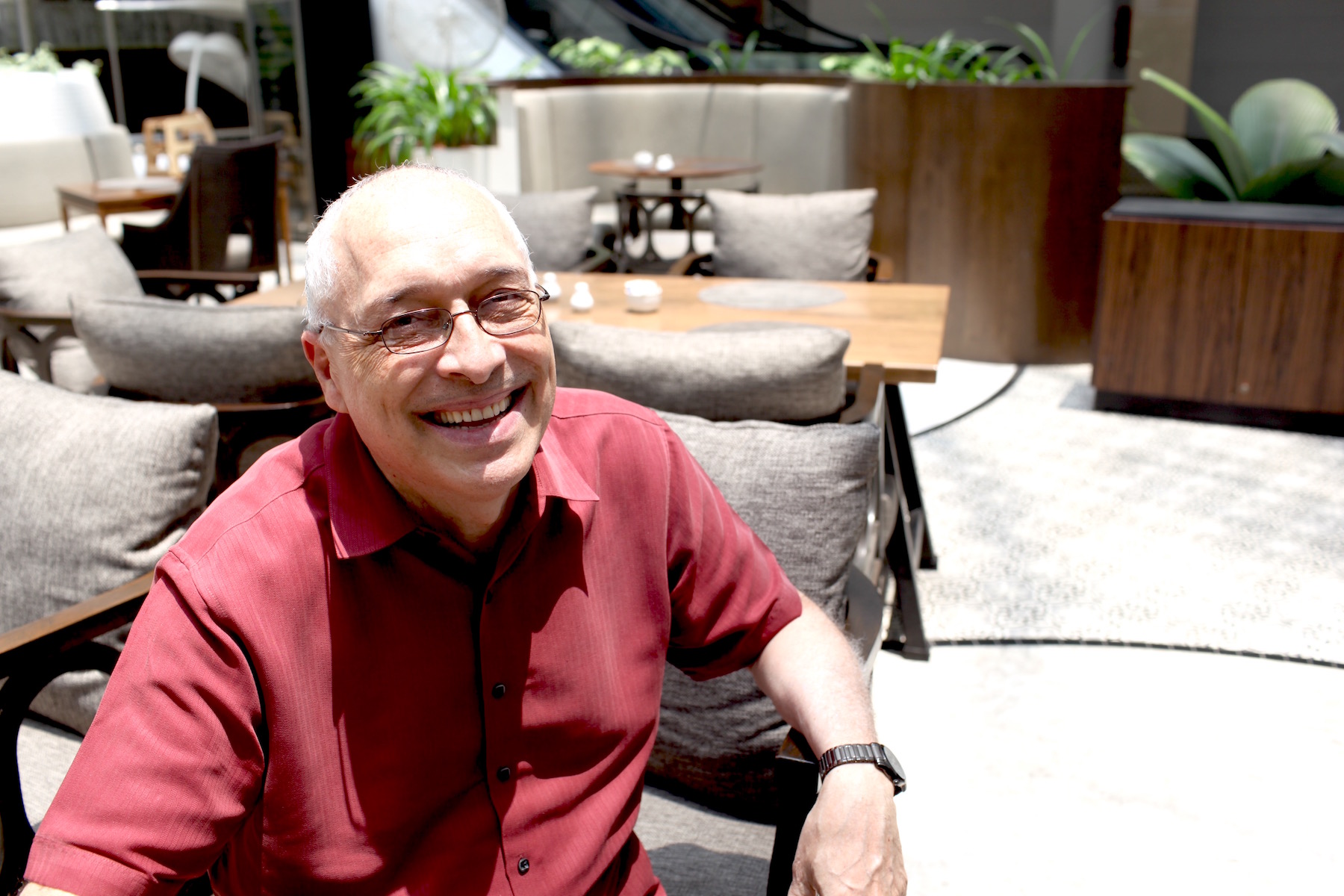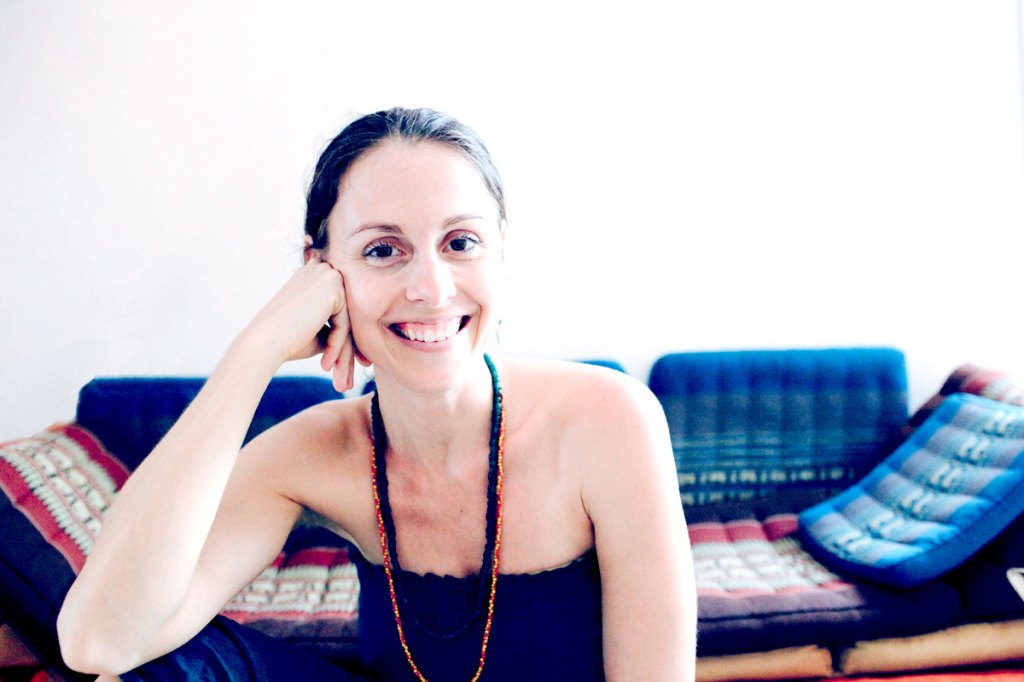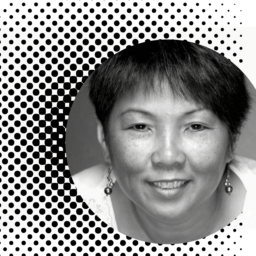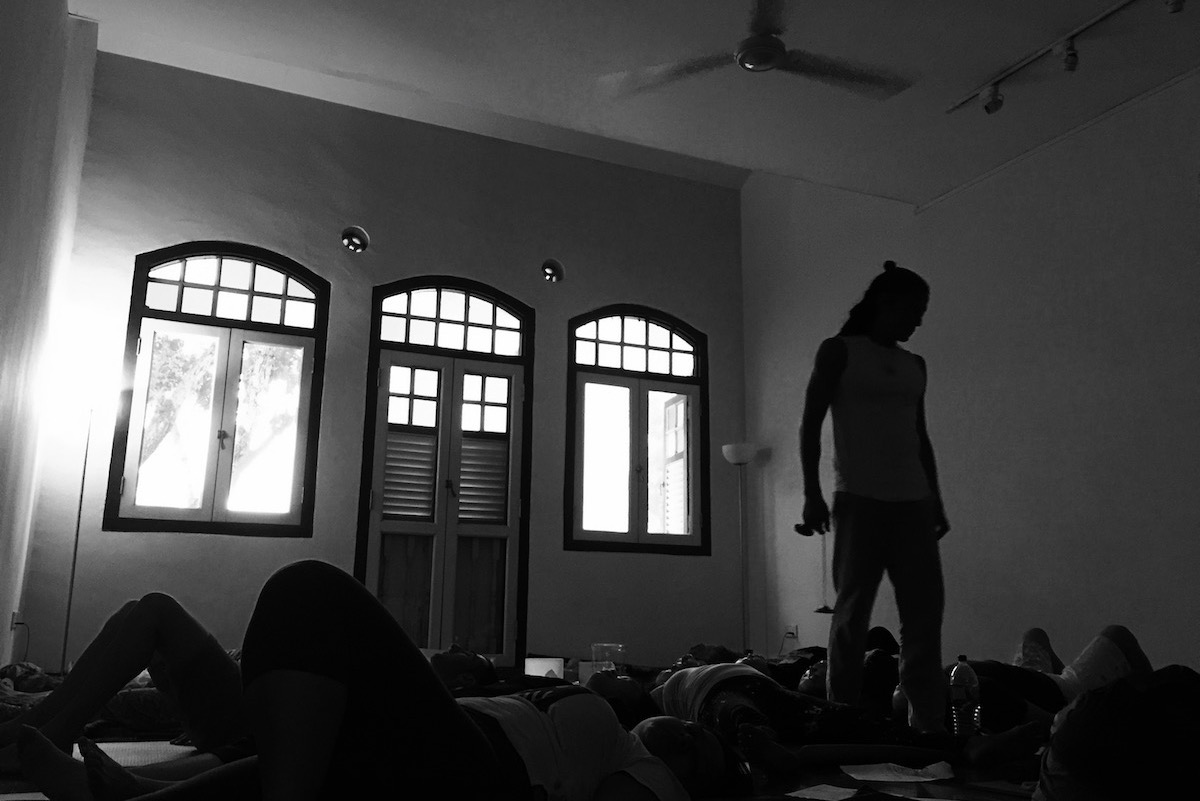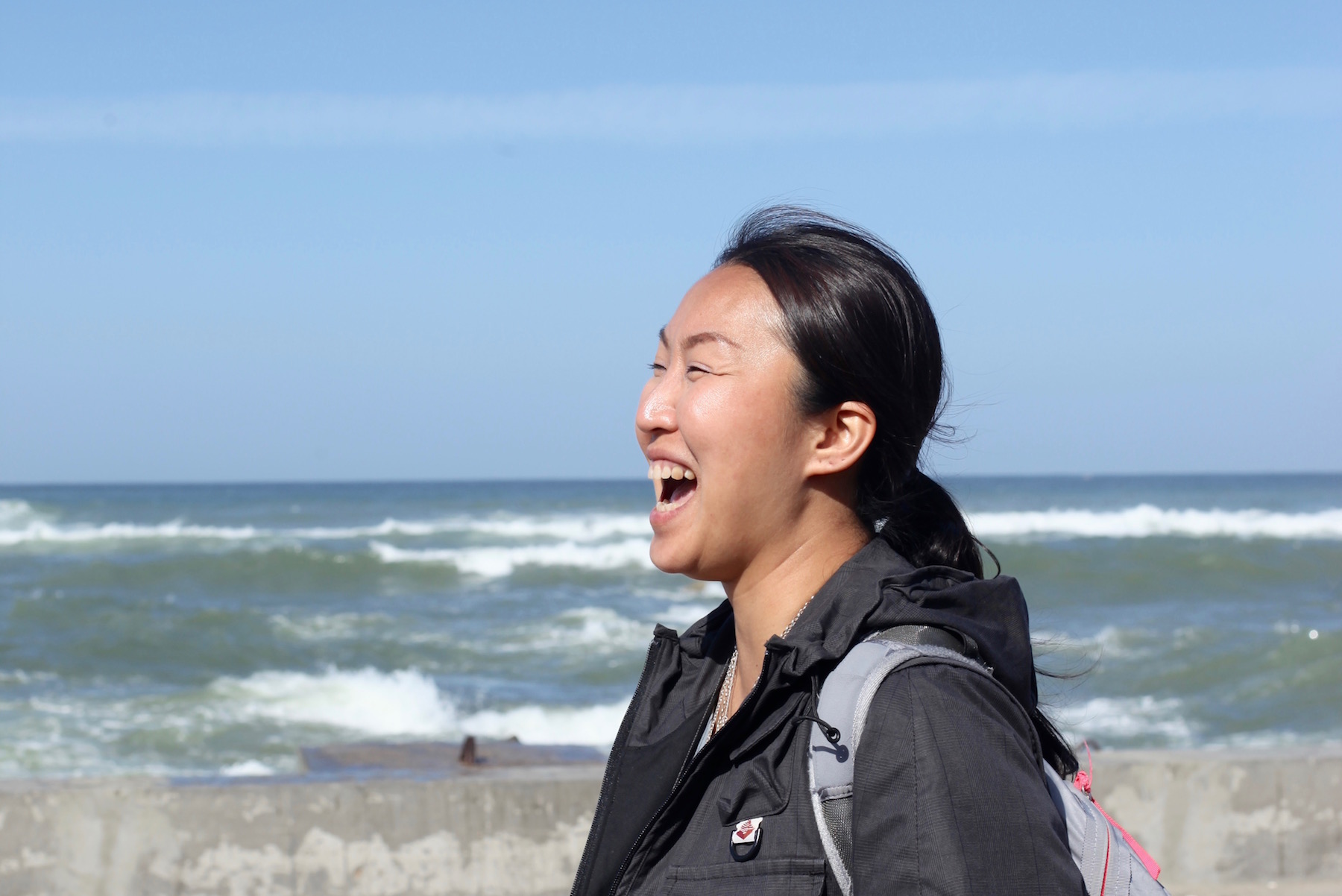Irene Khor is a Singapore-based BodyTalk practitioner and instructor. In this interview she shares her journey to BodyTalk and since as well as what BodyTalk is and what it is for her personally.
Q
How did it all start?
A
It was 2002. Anthony Robbins. Those were the times when he came [to Singapore] almost every year.
Back then I was doing accounts full time. I was in my late twenties and I thought, what am I going to do with my life. Colleagues asked me to try residual, passive income. So I did network marketing for a supplement company.
I still remember the first cold canvassing. My goodness, I was scared. I remember we went to an expo. I was walking around but I didn’t dare approach. Finally I saw this girl and I thought to myself, she will be my target. She looked more reserved than me! All I wanted to do was to get her phone number or email. That was it. When I finished, my knees literally went weak. Oh my goodness, there was so much fear. I got one number and left.
So the self-development was going to help me, right? The Anthony Robbins workshop was to help me open up and it had a huge impact on my life, and I would say, it was the starting point of my personal development journey. That exposure led me to NLP then BodyTalk and in between, there were things like Reiki.
Q
What did you learn from the Anthony Robbins workshop?
A
The Fire Walk in the Indoor Stadium made me think about the concept of fear. In front of that 10 feet of charcoal. With 4000 people. In one line you had hundreds of people. You paired up with your buddy, and if you didn’t go with friends, you just grabbed whoever sat besides you. So there was this young guy next to me and he grabbed my hand and we dashed outside. There were already maybe 50 people and he just grabbed my hand and pulled me to the front. People didn’t mind that you went ahead. They were like, go, go, go.
Q
What were you feeling?
A
There was a lot of fear. I was wearing jeans. I was thinking my jeans would burn, even though it was charcoal not fire. So you can see how great the fear was. Actually I wasn’t thinking about my jeans but I was worried that my hair would burn. The fear was intense.
Q
And then the moment you stepped on the charcoal?
A
I would say the fear wasn’t there when I did it. I was very aware. I was tuning into the feet. It wasn’t hot. You felt something warm. You didn’t stop. That’s the thing. The minute you step on you just move.
When I was finished, I thought “that wasn’t hard” but if you asked me to do it again, I wouldn’t. My takeaway was this – the fear is still there but it doesn’t stop you from doing something.
Q
Where you timid as a child?
A
At school, I was the good kid. When you are a good kid, teachers put you in charge and make you a monitor. So you do stuff because you have the authority, backed up by the teachers. If anything happened, I would also be able to go back to the teachers.
Q
How has fear impacted the way you live life?
A
Right now, I’m able to pause and ask myself if I really want to do this. If the answer is yes, a strong enough yes…knowing your jeans won’t burn and your hair won’t burn are a good reminder for me. Or I think why can’t I do this? What is missing?
But fear can be positive. Instead of just going ahead with everything, you stop to ask if it’s even something you want to do. The initial for me is always a “no” so the pause thing works very well.
Q
How much work have you done to get from an automatic “no” to a pause?
A
Now I can see a little bit of why the “no”. I have all these modalities to deal with the fear. I literally work with it.
Q
What kind of fears surprised you?
A
Swimming. I’m taking lessons. I can swim to the other side but when the coach is absent, I can’t. It goes back to the whole support thing. You can see the pattern. It’s still ongoing, to some extent. And you challenge yourself. So you do what you need to do, like bring your float to the other end, just in case.
I had a drowning experience as a child but that didn’t pull me back from wanting to swim. I thought it was that. Good to blame, right?
Q
Sometimes we want to find an explanation and the drowning incident is an obvious one.
A
Exactly.
Q
What was your first swimming lesson like?
A
I took my first lesson four years ago and I stopped for some reason. It was tough. When you go into the pool, it’s almost like you can die. The thing that was comfortable was when I learned how to recover. I could float on my back, which according to the coach is not normal for the majority of people who can’t swim. But I didn’t know how to stand up. So from floating, how do I get up? That’s when I would sink and drink a whole bunch of water.
Q
So it wasn’t a fear of water because you could float.
A
Exactly. It was a fear of death. It was very intense. I was tapping my cortices throughout. When it comes I let it run, rather than stop it. I don’t go, “that’s not real.” It is as real as it gets in my head. I let it run. I let it process.
Q
When you let it run, how do you actually deal with the fear? Since it gets so intense.
A
I keep tapping my cortices. I pull out the tools. I do Breakthrough. You go with it and at the end, you ask what is it all about. The body highlights whatever it needs to highlight. That’s BodyTalk.
Q
What did you try after Anthony Robbins?
A
Anthony Robbins helped me get to all this excitement. I was on a high for a month. I was feeling good and everything else. But when you come down, you feel like you are lower than before. It’s almost like depression. And you can’t pick yourself up again so that was pretty bad. You go deeper than you are used to. That was when the NLP came in.
NLP is the bolts and the nuts. That’s what I didn’t have. Left-brain tools I could use. I still practice it quite a lot. Like the presuppositions. An example is “the meaning of communication is the response you get.” If I talk to you and you don’t get it, it’s not your fault. Many people react by calling the other person stupid. But really it is this – how else can I communicate? How else can I speak your language. You learn to adjust.
Q
How has NLP shaped how you communicate through BodyTalk?
A
I think it’s easier for me. Getting back to NLP, there’s the assessing cues. When people come in for a session, some want information and some don’t want to know anything and just want to lie down. With NLP, you are able to very quickly assess where this person is and ask better questions.
Q
How did NLP help you come up from the depression-like state you spoke of?
A
There are techniques and tools. It’s almost like they break your processing down. So you understand yourself better. It helped me very much. After that, I worked at the NLP training company. I was very enthusiastically marketing the course on the internet, through EDMs. I was also helping with the study groups. That was four years.
Q
How did you get to BodyTalk?
A
Agnes Lau, one of the partners at the NLP training company I worked at, invited speakers once a month. One time Agnes invited Marcio Ribeiro. In two hours he did three topics, plus demos – gemstones for acupressure, craniosacral, and BodyTalk. But when he got to BodyTalk, for some reason, something connected for me. I knew he was going to ask for a volunteer for the demo so I was ready. Before he finished, my hand was up. Which isn’t me. I don’t do that. I don’t raise my hand. I don’t ask questions in class. After the talk, I approached him and booked myself a session.
I have no clue what came up in the demo or even the first session. Marcio and I were talking much later about this. There was no “aha” for me but something just felt right. I wanted to continue. I wanted a full session. After each session, I felt more peace. I felt more connected. I was not so fragmented.
Q
You did not decide to become a practitioner right away then?
A
No way. I went to BodyTalk because I was having this PMS thing. Every month, I had to be on painkiller. Every three hours. It was three or four BodyTalk sessions and I was off the painkiller. It was probably one session every two weeks. In the second month I realized I didn’t need the painkiller. I think most of those sessions were about emotions and relationships with my family. Mine was a threatened abortion.
The information is in the cells. The mind just acts as an interpreter. Thoughts do not originate from the brain, or the mind. It comes from the communication from a cell. So fear is not a mind thing. It’s an emotional thing.
Q
Maybe that’s where the fear of death comes from?
A
Maybe. Yeah. He worked a lot on that in the initial sessions. We worked it out that it was about death. Someone, not my mom, told me that my mom’s health wasn’t good and she was asked if she wanted to continue and risk her health or abort. By the time they decided to abort, it was too late. What I’ve learned in BodyTalk is that would have been the second trimester and that’s when the limbic brain is developing. If it were in the first trimester, it would be a different survival threat. The first trimester would be the reptilian brain. Stress and insecurity, which I do have but I have more of the emotional stuff.
Q
When did you decide to be a BodyTalk practitioner?
A
I almost never decided to become a BodyTalk practitioner. I was seeing Marcio for about a year. Something had shifted. It was a big deal for me not to be on medication. I’m not against medication. It was about not being dependent on medication. I had no other options and it was scary. So I wanted to know what Marcio did. I wanted to learn this stuff.
One day, Marcio said he was going to invite an instructor from Canada to teach so Sylvia came and she taught Access, Mindscape, and the Fundamentals. I took it all. Two weekends. It was a lot. There were about ten people in class and I still remember I was the last person to get the muscle testing.
Q
The muscle testing, with the wrist, looks difficult.
A
Yes. But it’s definitely evolved. The students now? They get it just like that. [Irene snaps her fingers] It could be a morphogenic field thing. They just get it. Again it goes back to me not being very comfortable working with people. I still remember, finally, on the third day I got it. But the thing was I had no permission from the partner I was working with to work on her. So I got the muscle testing but I didn’t get to do it. I love the concept – listen to the body and the body knows.
Q
So how come the body knows and we don’t know?
A
We are not connected. We are not aware. We are not trained to listen to our body. Kids know their body but they don’t have the verbal skills. You know, when kids are in pain, they cry. We keep telling the kids to behave themselves. What they learn is “so I’m not supposed to do what I want. I’m supposed to comply with society.”
Q
In a BodyTalk session, you listen to the body and you convey the information. How does that person then learn to hear their own body?
A
That’s where the Access comes in. That is something we encourage clients to learn. Access is maintenance and prevention. What Access does is to improve the circulation inside.
First to see if it’s an emotional marker. Then we work with whatever comes up through the protocol. A lot of times it’s the emotions we need to work with. If there is a lockdown like if the body cannot produce an enzyme, we work with that. We work with the markers being turned on or off. What triggers the on and off. It’s through priority.
Irene Khor, on epigenetics
Q
What does BodyTalk work on?
A
The thing about BodyTalk that’s unique is that we don’t diagnose. This means you can come with anything from an ankle pain, a headache, or feeling down or dull to the extreme of stage 4 cancer. From cradle to grave. You come with any diagnosis. We don’t diagnose. Through the intake form, I find out what you want to work with. We use the protocol to find out what the body wants to do.
Q
So for something like cancer, what does the body often want?
A
It depends on the stage of the cancer. The extreme? To help them cross over. To transition. To deal with unfinished business. From the human perspective, this may be the toughest one. But there are no assumptions. We can get “miracles”. For some clients, I almost can’t even see a potential repair. It’s just so damaged. You obviously don’t say that. Even the doctors have said there’s nothing they can do. We keep going. We do whatever the body wants to do. The tough part is to manage the family members. You don’t want to give false hope so you have to remain totally neutral.
Q
So you have seen what people would call miracles?
A
I think she was my first student for Access. She would come to Singapore for her medical treatment and for her BodyTalk sessions. She does Access very diligently. She also does meditation and a lot of other stuff. When she goes for radiation, the nurse always asks why she doesn’t have any side effects. Full recovery. I believe it was a tumour in the brain.
The body is definitely capable and wants to heal. We provide the body with a tool. It’s tough, even for BodyTalk students, not to go in there with the mindset that we will heal you. That’s the last thing you want to do. You are then putting in your own personal agenda. The other thing with BodyTalk is that when you are not ready to deal with transition sessions, they won’t come to you.
Q
What’s the most surprising about BodyTalk for you?
A
Every day, I am still amazed, and surprised by how much the body can do. Not so much what it can’t do. People say it’s just in the mind but that’s not true. The information is in the cells. The mind just acts as an interpreter. Thoughts do not originate from the brain, or the mind. It comes from the communication from a cell. So fear is not a mind thing. It’s an emotional thing.
A woman comes to BodyTalk. She’s beaten up by her spouse. A friend may say “easy, just leave your husband” but that may not be an easy thing to do at all. The person may have children. She needs to deal with finances. And the emotional issues, questions like “am I horrible” and “am I being a good wife”. There are so many things going on for that person. There is too much at stake for the person to walk out. I can’t say I can help you. I support the body to go where it needs to go. BodyTalk can help with abandonment, with culture, society, past lives.
Q
How does BodyTalk help with that? Does it help release that information from the matrix?
A
It helps to locate the person’s will or strength that was lost. From the Traditional Chinese Medicine perspective, we call it the dian tian. If that is weakened energetically, the rest wouldn’t work.
Q
So you have a protocol for all of this, to strengthen the cells, the tissues…and the person will come to the realization on their own?
A
Yes. And they will find other modalities to go on. Maybe a counsellor.
Q
So BodyTalk will help other modalities be more effective?
A
Exactly. One of the fundamental philosophies is “are you ready.” Let’s say Roger is a massage therapist and we know he is good. Today my body doesn’t need a massage but I go to Roger. If the session creates a pain, do I say he’s bad? With BodyTalk, one of the things we look at is priority.
In the protocol chart there is a bubble at the bottom called “Other Modalities”. The challenge is when people come with a pain but the priority is something else. They want to know why I’m not fixing their pain. It’s not up to me. This goes back to the mind. The ego. We want to fix something. But it’s really about listening to your body. There is something more important. What’s important and what’s urgent.
The protocol is a tool, a map. Clients come back regularly for a tune-up because they believe in this concept. They believe the body knows and they trust the guidance. As a BodyTalk practitioner, you really want to empower them. The message is it’s not me doing this. I’m an observer and a facilitator. It’s you who’s doing the healing.
Another way of saying this is that the healing is not my responsibility and accountability as the practitioner. We want the individuals to work on themselves. It’s a bunch of stories. I’m not going to judge you. I’m just going to listen to your body. And if you really want to get out of that story, you can do something about it. At the end of the day, BodyTalk is the empowerment that people feel. That they did it.
Q
How would you describe BodyTalk?
A
We look at the body as a complete whole, as a human being. We cannot separate what is physical, what is emotional, and what is psychological. They are all interrelated. For fear issues, obviously it has connotation for my neurotransmitters or my hormones. The protocol is designed to address all of the components in the body.
Q
The BodyTalk perspective on past life is quite interesting…
A
So, I didn’t exist before. And I will not exist again. As me. The way we look at past life is we look from a universal consciousness perspective. I am Irene Khor in this lifetime and these are my characteristics. When I die, my soul goes back to the universal consciousness. All my unfinished business, like unresolved fears, and my stories – we call them marbles – they go back to a pool of all the marbles. The soul stories reside in our liver. When I resolve something this lifetime, the story will dissolve and the information will be transferred to my heart. In the past, you pushed my button and when it’s resolved, you no longer push my button.
When a soul gets born, it scoops from the pool of marbles. The past life experiences we pick up aren’t “ours”. It’s not yours. It’s not Sandra’s past. It’s a past life. It’s a story. So we deal with that story using this body, this lifetime. This is the concept of past life, which is different. There is a continuum, for the universal consciousness to evolve.
Q
You were in Calgary recently?
A
I took the Prama Practical and this new course called The Body Ecology. There is so much to learn. John [BodyTalk founder] keeps up with the latest scientific discoveries.
Q
Yes, he spoke about epigenetics on one of his visits.
A
That was the time when everyone was talking about epigenetics. And we have tools to deal with that.
So someone who has cancer in the family? You still do the protocol. The thing about epigenetics is that they may not get cancer. First is to educate them, in the sense to provide them with the information that cancer is not automatically true. They may have a few generations of cancer but that doesn’t mean they will get it. They then understand they can do something about it, like lifestyle changes. Even if it’s their story to get cancer, we deal with it.
Q
How do you deal with the epigenetics?
A
First to see if it’s an emotional marker. Then we work with whatever comes up through the protocol. A lot of times it’s the emotions we need to work with. If there is a lockdown like if the body cannot produce an enzyme, we work with that. We work with the markers being turned on or off. What triggers the on and off. It’s through priority.
Q
If someone is going through something very emotional, then that’s a very good time to do BodyTalk?
A
That’s right. You can tap the cortices. It’s free and available. I have seen people who tap the cortices, not knowing anything about BodyTalk. They googled and found it. They tap and find something shifted and then contact me for a session.
Q
In an emergency?
A
The most beautiful thing is that when they have the emotional meltdown, they can tap the cortices right away. Get the brain out of shock. We say the body can and wants to heal itself. We can help it. We lock down because we go into shock. Even if it’s a small cut, once you see the blood, many people go into fear. Worse still is the environment so you don’t get just your own fear but your family’s fear, the pedestrian’s fear…
Q
Even if you are not ready for BodyTalk, learn the cortices.
A
Learn the cortices. It’s easy. You can do it for yourself, other people, animals, and even plants. Go back to the concept of selfishness. You need to take care of yourself. You have the oxygen mask example. If you are cleaning and if your feet are dirty, your floors will never be clean. You have to clean yourself up first. This is the concept of selfishness in a different way.
Irene Khor of Awakening Touch offers BodyTalk System™ sessions. BodyTalk is a synergistic integration of Western and Eastern medicine that works with the body to allow the physical parts to communicate harmoniously and in relationship with the emotional and psychological functions appropriately. «Directory Listing»


